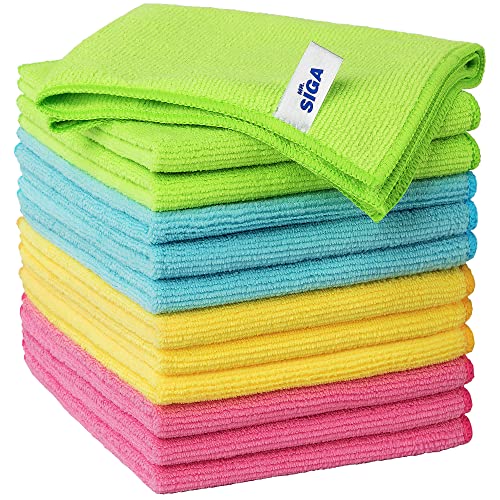Every party needs drinks…and every drink needs a glass! Heck, even if you don't do a ton of entertaining, drinking glasses are an essential item to keep in your kitchen. Although drinking glasses are reusable, you may wonder whether they have a "best by" date. Is there a set time when people should toss their glassware? Before you dump all your drinking glasses in the garbage, you've got to read the research we've done on this topic.
Most people don't replace drinking glasses until they break. Glass is durable, so it could last a lifetime with proper care. If you avoid extreme temperature fluctuations, opt for hand-washing, and store your drinking glasses properly, they should last years.
Drinking glasses can last a very long time, but you have to handle them with care. Below, we'll go over a few tips to get the max longevity out of your glassware. Without further ado, let's get into it!
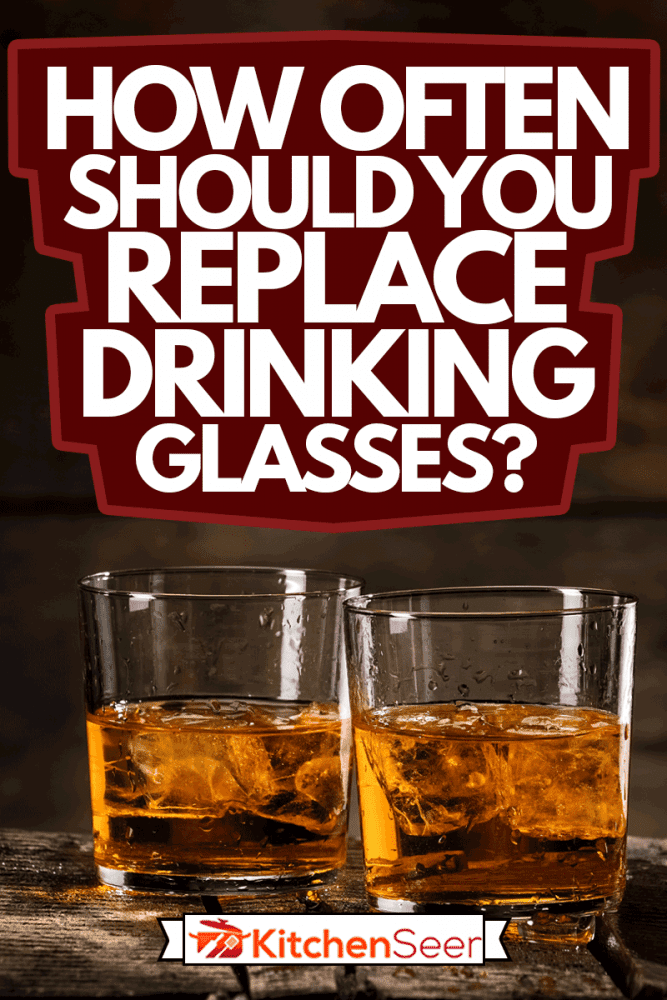
How Often To Replace Drinking Glasses
There's no standard time for replacing drinking glasses. Honestly, you may not have to replace your drinking glasses for your entire life. It all depends on the quality of your glasses, how often you use them, and how gently you handle them.
Obviously, the more often you use your glasses, the more wear and tear they'll experience. Just like a car, glasses will gradually wear down with more "margarita mileage!"
Also, the more people that use your drinking glasses, the more likely they will crack. Once you notice cracks or chips on your glass, it's time for a replacement. Before then, however, it's up to your best judgment.

Does Glass Deteriorate Over Time?
Technically, glass deteriorates over time—but we're talking a long time. Indeed, researchers at MIT claim glass could remain practically unchanged for thousands of years.
According to recent research from the University of Southern Indiana, most glass bottles take at least 4,000 years to decompose. Plus, many mass-produced drinking glasses are made to withstand temperature fluctuations.
Although glass may seem fragile, it is an incredibly durable material.
Does Glass Get Fragile With Age?
Generally speaking, glass is incredibly resilient. If you handle drinking glasses with care, they shouldn't feel exceptionally brittle as they age.
However, drinking glasses will inevitably experience "wear and tear," and they will get increasingly fragile through the years.
Every time you expose glasses to extremes in temperature, you will trigger "thermal shock." Glass molecules either expand or contract in response to hot or cold beverages.
Hot environments like the dishwasher will wear away glass particles. Everyday activities like handling your glasses, drying them, and putting them away will also cause microscopic tears.
Although drinking glasses should last for years with proper care, they will be more susceptible to breakage with increased usage. Please be mindful of this risk as you handle older glasses.
If you need a refresher on washing drinking glasses by hand, please watch this video:
Is It Safe To Drink From Old Glasses?
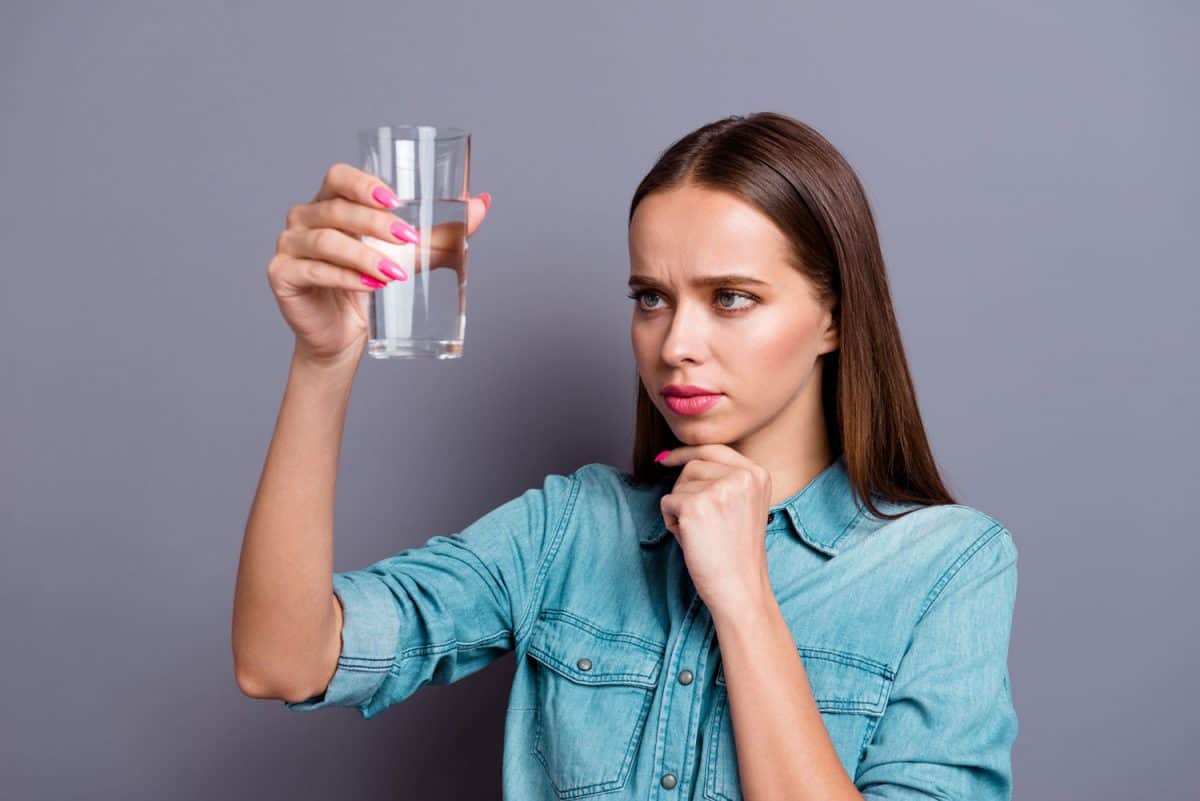
Although drinking glasses will experience wear and tear over the years, it's safe to use most old glasses. However, you should be extra cautious about any glasses with decorative features.
Recent research out of the UK found that some drinking glasses with cute decorations have nasty compounds like lead. Please never use glasses that have red enamel, as this chemical is associated with many cancer-causing substances.
Other than that, using old drinking glasses usually doesn't pose a severe safety risk. Just be sure to hand-wash these glasses to keep them from getting too brittle.
How Do You Clean Drinking Glasses That Have Become Cloudy?
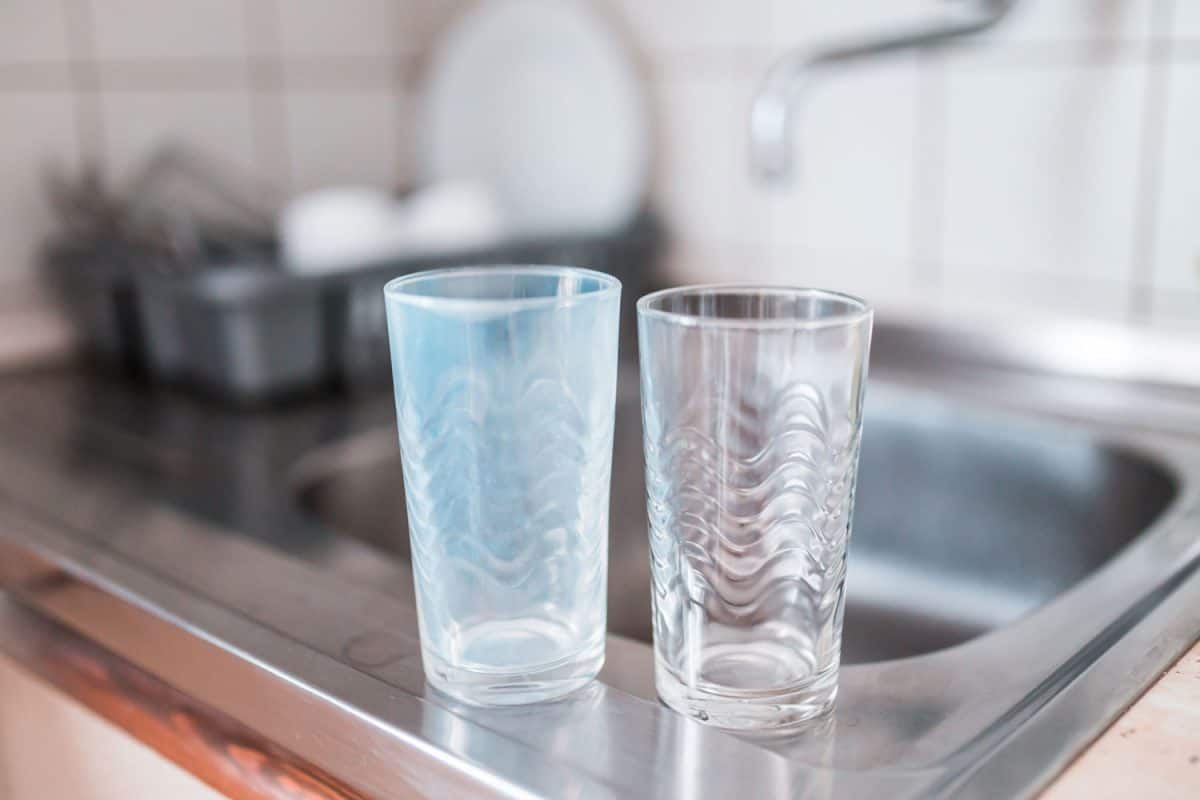
White vinegar is the secret ingredient to fighting cloudy stains in glasses. First, mix one-part dishwasher detergent with another part distilled vinegar and three parts water. Next, hand-wash your drinking glasses with this mixture and warm water.
For a video demonstration of this method, please watch this video:
Pro tip: always use a glass-approved microfiber towel to dry your drinking glasses. These gentle cloths will eliminate smudges and stains without scratching your glasses.
Click here to see these microfiber cleaning cloths on Amazon.
Should You Put Drinking Glasses In The Dishwasher?
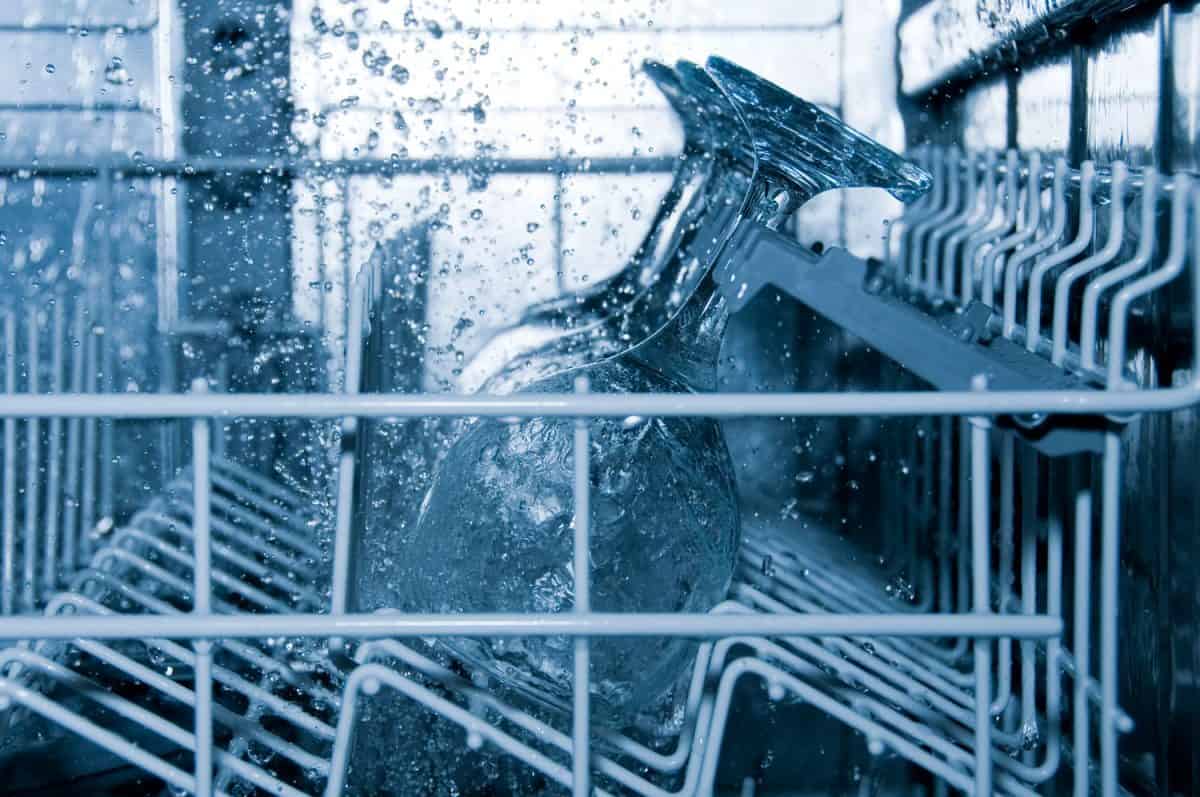
Most dishwasher manufacturers claim it's only safe to put wine glasses and thick drinking glasses in the dishwasher. However, since dishwashers are more abrasive than hand-washing, they will increase the risk of thermal shock.
While putting pre-approved glasses in the dishwasher should be fine, hand-washing will improve the longevity of your drinking glasses. It's also less likely you'll see stains or marks when opting for old-fashioned hand-washing.
By the way, you could learn more about glassware care in this article: Are Wine Glasses Dishwasher Safe?
Are Broken Drinking Glasses Recyclable?
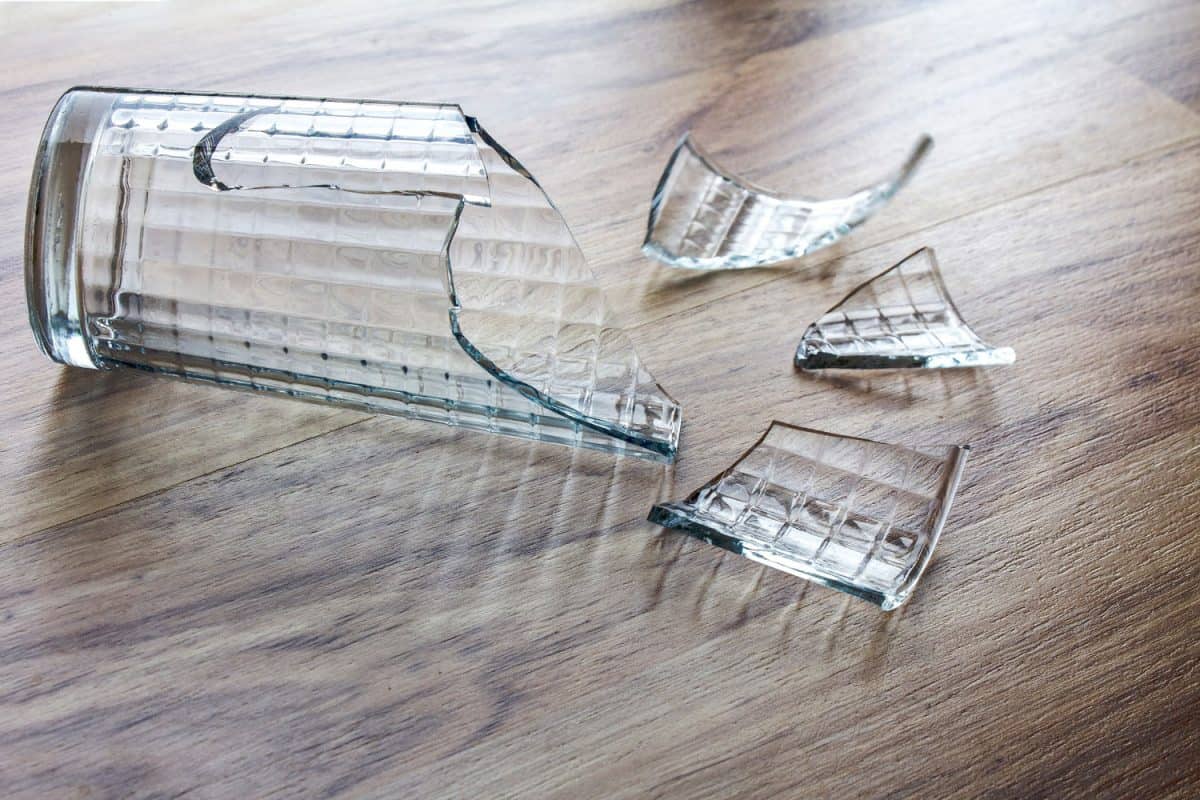
Most broken drinking glasses aren't recyclable. According to researchers at Stanford University, only glass food bottles and jars are OK at most recycling facilities in the USA.
Interestingly, many drinking glasses are treated with additional food-safe chemicals to improve their resistance to thermal shock. While this extra treatment enhances drinking glasses' longevity, it also means they aren't suited for recycling.
For more specific information on the recyclability of your drinking glasses, you should reach out to your product's manufacturer. You could also contact a local recycling facility for expert guidance.
Although you can't recycle most drinking glasses, you could donate any non-damaged glasses you want to get rid of. Otherwise, it would be best to put broken glasses in the trash.
Do Plastic Drinking Cups Last Longer Than Traditional Glasses?
Nowadays, not all drinking glasses are made with glass. In fact, you could find many reusable, BPA-free plastic drinking "glasses."
As long as your plastic drinking cups are made with high-quality materials, they could last for years. Plus, since plastic won't shatter if you drop it, it's klutz-proof!
Click here to see these plastic drinking glasses on Amazon.
Whether plastic drinking glasses last longer than regular drinking glasses is debatable. However, if you take good care of your plastic cups, they probably won't need to be replaced for several years.
For expert guidance, be sure to research any manufacturer-specific recommendations for storage, cleaning, and longevity.
Do Expensive Drinking Glasses Last Longer?

Typically, longevity isn't the primary selling point for high-end drinking glasses. As we mentioned in our post on investing in expensive wine glasses, most of these top-tier glasses are made with the drinking experience in mind.
Unlike traditional drinking glasses, high-quality products have unique features that enhance your experience. Also, many expensive drinking glasses have more alluring aesthetics.
Click here to see this crystal glass wine decanter on Amazon.
Although expensive drinking glasses should last a lifetime, that doesn't mean affordable glasses can't last a long time. You should always research your manufacturer's average rating before making a big investment.
Be sure to review what features distinguish one glass model from another. Generally, cocktail connoisseurs who do a lot of entertaining will get the most value out of higher-priced drinking glasses.
Should You Store Drinking Glasses Upside-Down?
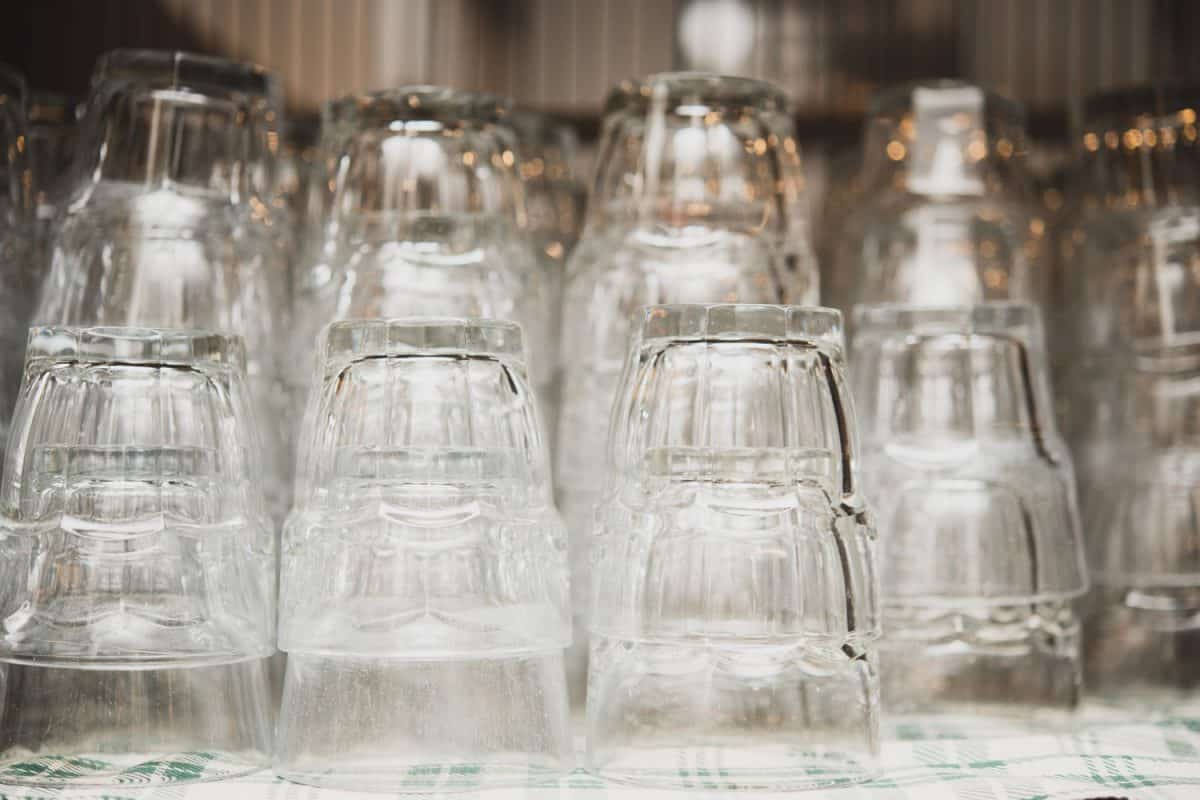
One of the greatest controversies regarding drinking glasses has to do with storage. Specifically, should you place drinking glasses upside-down?
Advocates of this topsy-turvy theory believe it keeps dust from accumulating in your glasses. However, most kitchen experts believe putting glasses upside-down could do more harm than good.
Sure, storing glasses upside-down may prevent dust, but it also poses the risk of trapping moisture (and, by extension, mildew). Also, keeping glasses upside-down puts more strain on each cup's fragile rim, which could increase the risk of cracks.
If you're concerned about storing your glasses, there are dedicated storage devices. These products may be worth the investment if you have expensive cocktail glasses.
Click here to see this wine glass holder on Amazon.
For more tips on storing drinking glasses, be sure to check out this guide: How To Store Glasses And Cups In The Kitchen
In Closing
There's no hard-and-fast rule for replacing drinking glasses. Honestly, most home chefs don't replace their drinking glasses until they crack. With proper care and maintenance, a set of standard drinking glasses should last for years, if not a lifetime.
However, unlike the wine you may be enjoying, glasses don't get better with age. Repeated use and exposure to hot and cold temperatures could make older glasses more susceptible to breakage.
To enjoy your drinking glasses for a long time, it's best to rely on hand-washing, let them air dry, and only use a microfiber towel. You may also want to invest in a high-quality storage case, especially if you have expensive drinking glasses.

